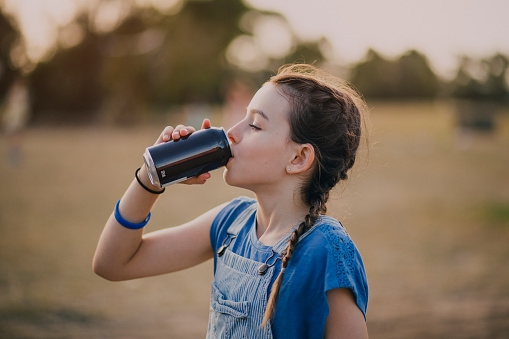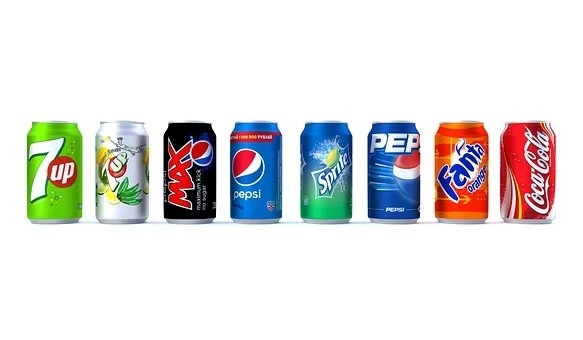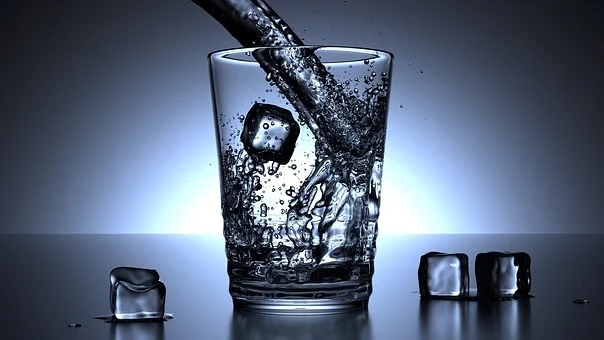Should children drink fizzy drinks?

Fizzy drinks are loaded with sugar that forms a nasty film over your child’s beautiful teeth that you are trying so hard to keep in tip top condition and the cola style drinks are loaded with caffeine which will certainly ‘zing’ your child up and make them hyperactive – so how do you tackle the battle of the fizzy drinks?
The first point is that banning them altogether is difficult nigh on impossible and for most children makes fizzy drinks a ‘forbidden fruit’ that makes them even more attractive. Rationing them is far easier! In our household, our children were allowed fizzy drinks and chocolate ONLY on Saturdays. If we went somewhere on another day of the week and they were offered either, they could have them, but they could also say politely ‘no thank you’. We educate our children about why it is best not to drink fizzy drinks every day and we led by example.

Most fizzy drinks contains no nutrients, are full of ‘empty calories’ and plenty of sugar. A can of standard cola contains the equivalent of four tea cups of sugar.
Too many fizzy drinks has been directly linked to childhood obesity in several recent UK studies.
Fizzy drinks fill a child’s stomach so they do not feel hungry and don’t eat enough nourishing foods. Too many fizzy drinks and your child could be deficient in vitamin A, calcium and other important nutrients.
Some fizzy drinks contain phosphorus which is known to sap calcium from bones- there has been a noticeable rise in broken bones in teenage girls in recent years and medical experts are blaming fizzy drinks.
There is no escaping the fact that most fizzy drinks cause serious tooth decay. Experiments shown on UK TV have shown that fizzy drinks can damage tooth enamel in under 25 minutes – and front teeth (the ones on view the most) are the ones most at risk).
Many cola style drinks contain caffeine and this is not good for children. Caffeine upsets the delicate balance of neurochemistry in a developing brain and caffeine is addictive. Caffeine also affects the adrenal gland in a negative way by stimulating it without the provision of any nutrition – if this happens regularly, this can lead to exhaustion of the adrenal gland
Too many fizzy drinks can lead to other health problems including Type 2 diabetes (raised blood sugar levels).
Drinking fizzy drinks too often can affect the acid/alkaline balance in the stomach – encouraging it to be more acidic which can cause dietary problems,.
Fizzy drinks are diuretic like tea and coffee (which both contain caffeine) and these can cause poor digestive function.
A can of regular cola contains 33-58 mg of caffeine- but don’t think giving your child diet cola is better- it most certainly isn’t as it contains much more. Be warned, it is not just the cola drinks that contain caffeine – many ginger beers, orangeades and other fizzy drinks do too – always check the label.

Having given all the reasons why your child should not drink fizzy drinks, the next question is how to make the switch? A good alternative is sparkling water which can be flavoured with no sugar added squash or a small amount of fruit juice.
Children love special things so why not serve their new style drink in a smart new plastic tumbler with some ice and a straw? True this is adding to your workload, but for a very positive reason. If you prefer to wean them on to plain water, mark a bottle with their name and chill it well in the fridge overnight and again add some ice cubes – you will find your child will enjoy the new style of drinks!
If they are going out for the day. Freeze a small bottle of water overnight (remove 10% of the water if it is a new bottle as ice expands) and the next morning pop the bottle in a plastic bag. The water will slowly defrost through the morning and your child will love being able to sip the cold water – this works well for school drinks too. If your child is going to a birthday party, arm them with a small bottle of sparkling water so they don’t have to drink a fizzy drink.
Make the new venture fun and if your child needs encouragement, a smiley chart will help to record their success at having fizzy-free days with perhaps a small reward after such as a new pencil after three days and seven. Plenty of praise and encouragement will really help your child and fizzy drinks will soon become just an occasional treat….
Chrissie x

